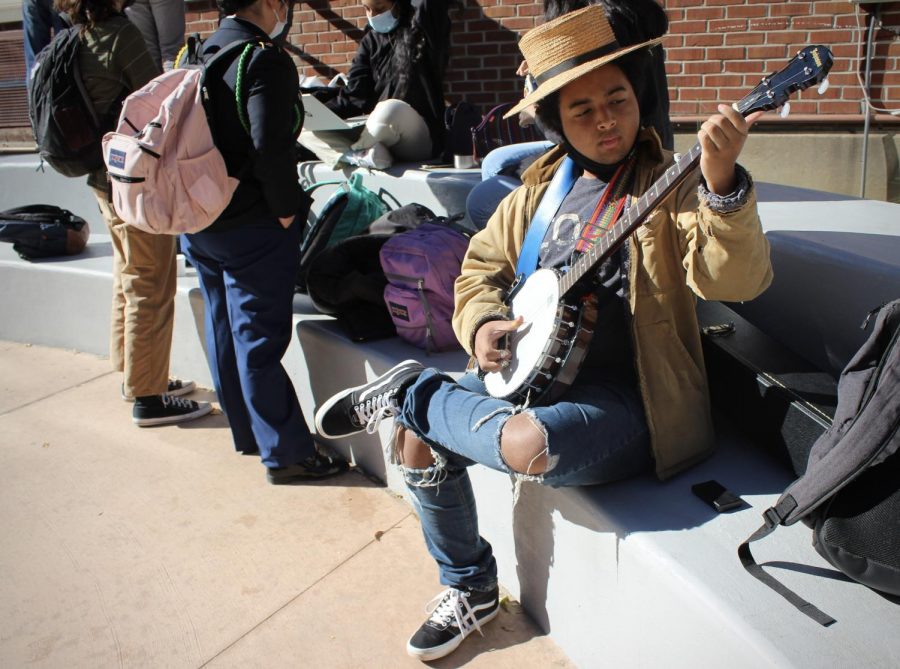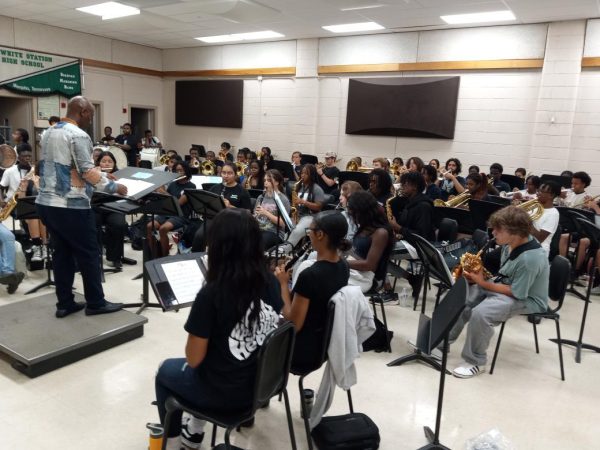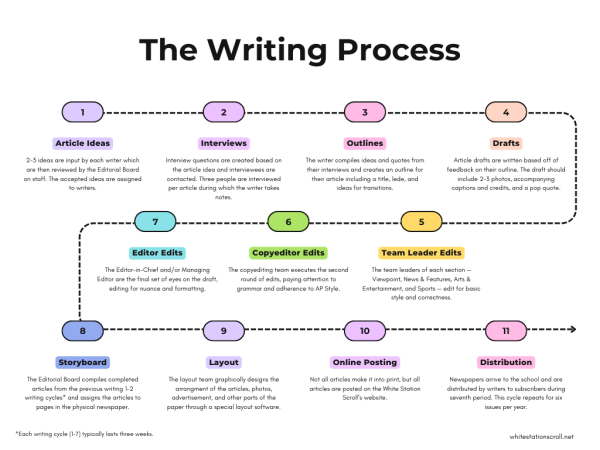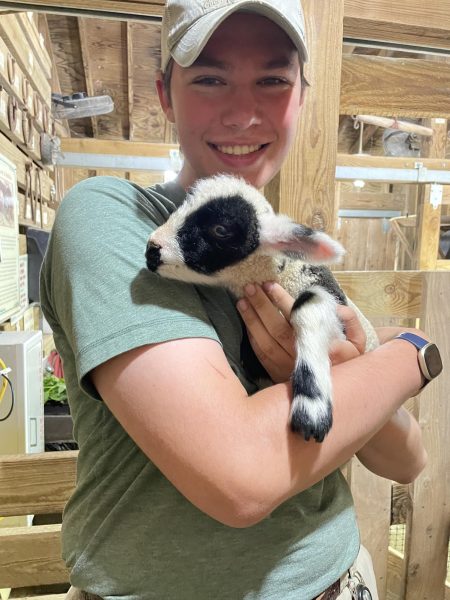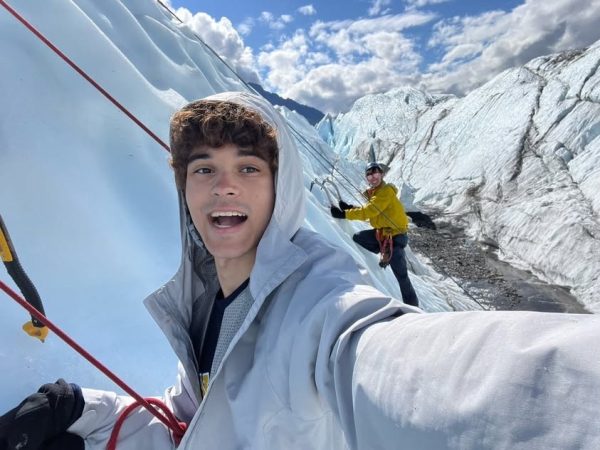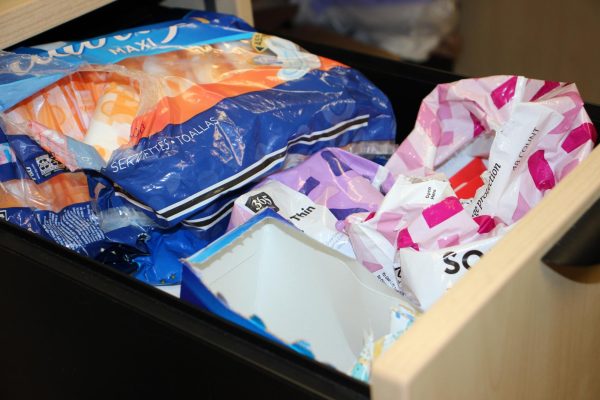The Banjo Kid
In his iconic straw hat, Bailey Davis (10) plays his banjo in the courtyard alongside other students during lunch. Davis has been playing for one to two years off and on but has been playing more often during his time as a White Station student, taking lessons from practical law teacher William Fernandez. “It’s such a social music; it’s part of our fabric, it really is, so when you see him out in the hallway playing banjo, people naturally gravitate to it, and that plus his personality — it’s the perfect combination,” Fernandez said.
In fourth period one day, Bailey Davis (10) walked in with a banjo. Davis had never talked about playing the banjo before — but from then on, it would never leave his hands while at school. The bluegrass twang of the banjo rings down the hallways, in the cafeteria, through the courtyard and everywhere in between from then on.
“I met him in fourth period, and we started talking as we walked from the portables to the cafeteria and to the main building, and one day he just walked in with a banjo, and that’s literally how it started — walking in with a banjo … he just walks in with a banjo everyday now,” Christian Protopsaltis (10) said.
Students often hear his brassy strumming in between classes every single day, which begs the question: why does he have his banjo on him at all times? Davis’s answer is not about attention or status — he simply wants to hoan in on his craft as much as he can.
“Any second I have that’s not doing schoolwork, or something else, if I can spare time during school, I will practice,” Davis said. “Even when I get home, when I’m done doing my chores and all that stuff, I practice. Because how are you gonna improve if you don’t practice? … a lot of people like it; some of the people don’t, but I try to practice as much as possible. And over time, I get better and better.”
Despite not having him as a teacher in class, Davis recently started getting lessons from practical law teacher William Fernandez. They practice each Friday, and he learns songs like “Cripple Creek” and “The Flint Hill Special” that Davis selected for their southern sound.
“I was walking in the hallway and overheard him talking, and I started having a conversation with him, and he talked about the mountains because my family is from the mountains … and I hadn’t played the banjo for a while at that time because I kind of got made fun of really big for it … basically, me and him got together, and we play every Friday,” Davis said.
Fernandez and Davis connected over their similar roots in east Tenn., and Fernandez also plans on teaching him about the culture and history surrounding Bluegrass and the banjo. He immediately noticed Davis’s good ear for the tuning of his banjo, which was, according to him, a necessary but difficult skill for any player.
“He’s just the ideal banjo player,” Fernandez said. “He’s jovial, fun to talk to; he’s pretty light hearted most of the time, and it’s like it fits him perfectly. I can’t imagine him not playing banjo.”
Davis has other tactical hobbies like fixing cars with his grandfather, with a 1979 Volkswagen Bus being the most recent project. He also is proficient in building model trains and clay sculpting, but the banjo is something he dedicates most of his time to, and he accepts the title of “Banjo Kid” with open arms.
“When I play it, people get really confused … it just makes people just kinda smile and laugh cause they are like ‘The Banjo Kid’s back guys,’” Davis said.
The future is uncertain for Davis. He plans to pursue a career with his talent in the banjo but isn’t focused on one set way to get there. He is more focused on the impact his playing has on people and how he can get better as a banjo player.
“It’s like, wherever the waves take me, I’ll just wash up on the beach,” Davis says. “If somebody wants me to be in a band, I’ll be in a band. If somebody wants me to play something, I’ll play it. Because it’s not really about what I’m doing that matters, it’s how I make people feel.”
As a student at White Station, he not only noticed the intelligence and diversity of the student body, but also the disparities between students regarding academic confidence. He believes that he is doing at least one thing right by making people smile and laugh to distract them from the troubles of everyday life.
“Simple things in life make people smile,” Davis said. “Like, a lot of people think that they need money or their life has to be perfect or they need to be popular on Snapchat or on Instagram. My philosophy in life is that you don’t need that much in life to be happy. I mean good things can come; I mean great big things can come, but that shouldn’t be your priority in life. Like, me playing this banjo on my porch drinking a cup of tea in the morning — I mean that’s just so simple.”
Your donation will support the student journalists of White Station High School. Your contribution will allow us to purchase equipment and cover our annual website hosting costs.



































